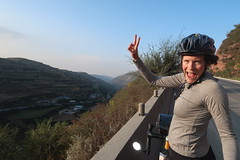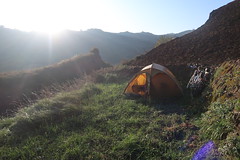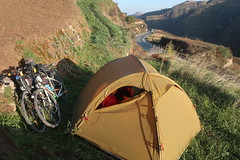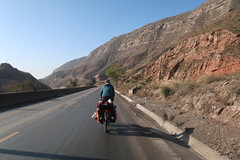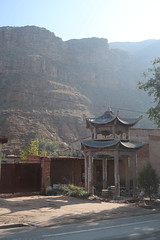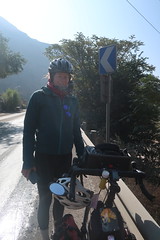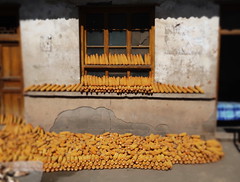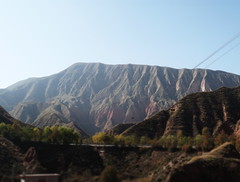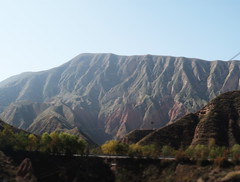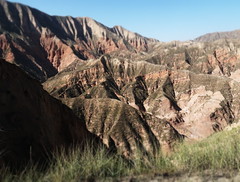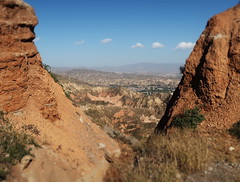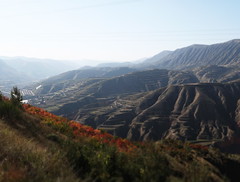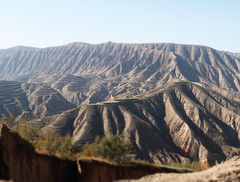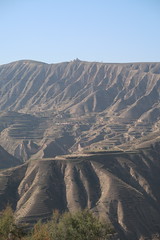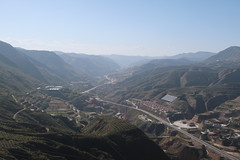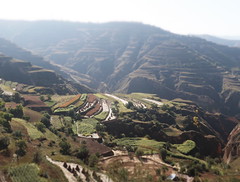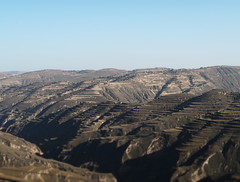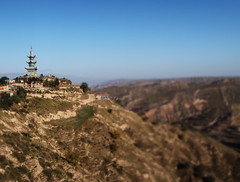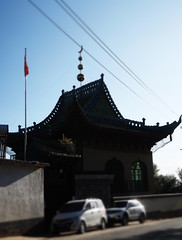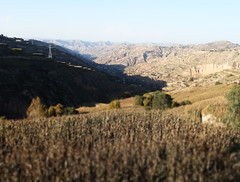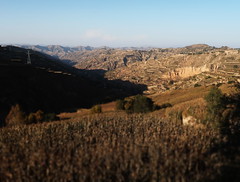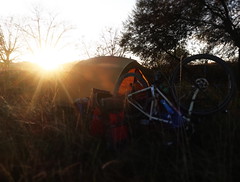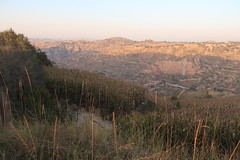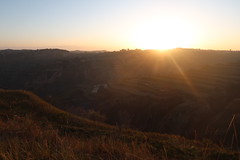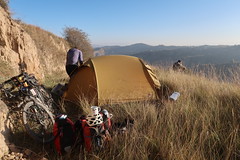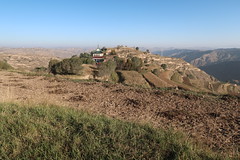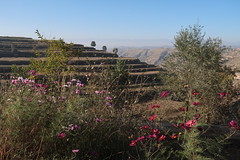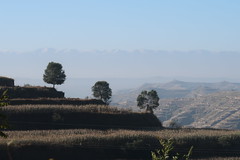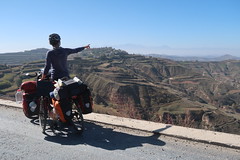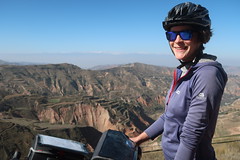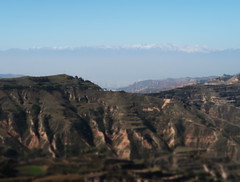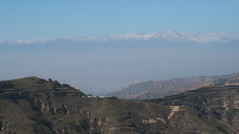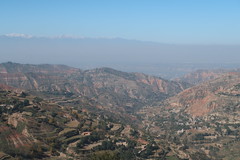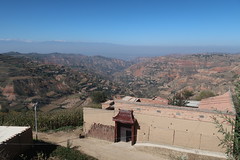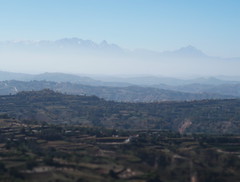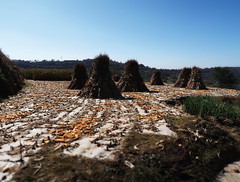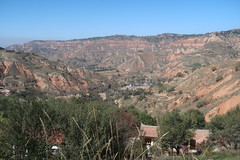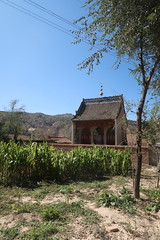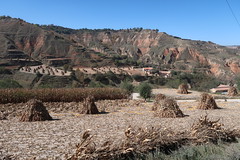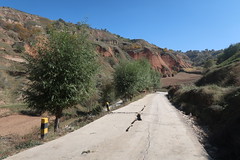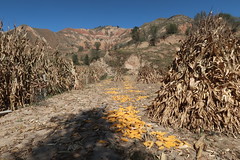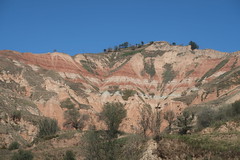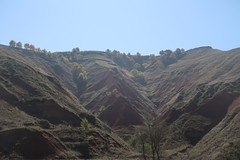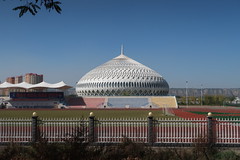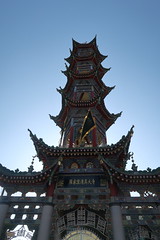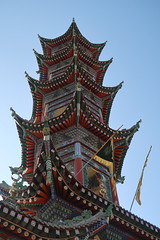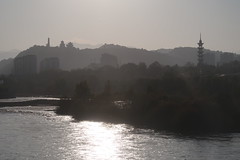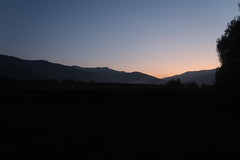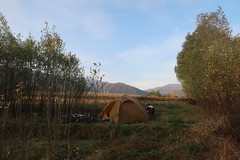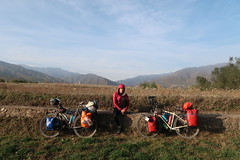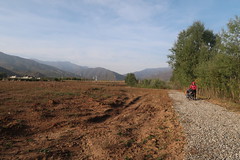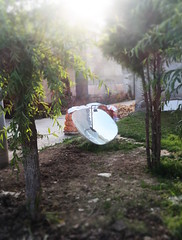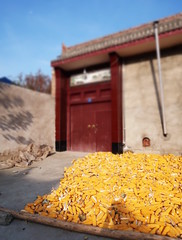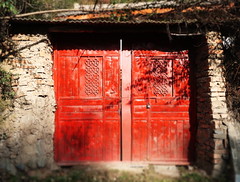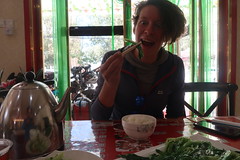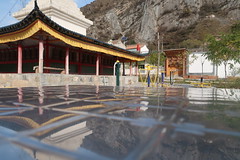Despite our excitement, the first few days of cycling in China were undeniably difficult. Funny and interesting, but also incredibly frustrating!
We seemed to face a wall of “mei-yo”s, aka “don’t have”. Sim card, money exchange, petrol for our stove? Mei-yo, mei-yo, mei-yo. All asked in conventional places: mobile phone shops, banks and petrol stations. Mei-yo, mei-yo, mei-yo. What was most frustrating, was that after asking and receiving a “mei-yo”, their back turned and they walked away, giving us no chance for any other question.
Wait! But we still need a sim card, money and to fill our fuel bottle with petrol. Why can’t we get it here and where can we go?! No chance to ask.
This – again and again and again.
Eventually, we found a phone shop big enough and they eventually gave us a sim. Eventually, someone understood that we didn’t have a license plate and so couldn’t register our petrol purchase, but needed it and didn’t want to make a bomb from it and so took us to a back-street garage and bought us 2.5l of it for us (enough to last us 2.5 months, but at this stage we weren’t complaining!). Our Kazah Tenge however never got exchanged. We’re still carrying it and still hoping to meet a cyclist going in the opposite direction to us that is heading to Kazakhstan…
“Mei-yo”s aside, we were enjoying cycling through the crazy landscapes that surrounded us. Steep sided hills, etched with terraces of corn fields, with roads weaving across and between them.
Our campings in these first days were not so wild. We would search until the sun was almost down, waiting for people to leave the fields so that we could camp quietly in the corner of one. More often than not, we were joined in the morning by a curious pair of eyes, who might just sit and watch in bemusement as we took down our tent.
One evening, we were happy to find a quiet field an hour before sunset. As we took advantage of the extra daylight to do some bike mechanics and retrieve the pen knives that we had hidden in our seat posts before crossing the border, we were approached by a young local. It was obvious that we were planning to camp as our tent was already up, but he seemed distressed by this. Shortly after, with a bit of sign language, we found out that we had just inadvertently camped on a graveyard… In our defense, there were no gravestone or tombs or other markings in the field. Just, on closer inspection, a few grassy mounds. Oops.
Our new friend indicated there was a better place for us to camp and took us around the side of the mosque to what could best be described as the village square or car park. Needless to say we declined his relocation offer and found ourselves another field in the dark. This one was a little flatter.
After entering China, our diet had changed pretty much overnight. Our previous Central Asian staples of buckwheat and lentils changed instantly to rice, noodles and tofu. There wasn’t a lentil in sight. Breakfast additions of dried apricots and walnuts to top our oats were switched for soya milk powder and a handful of bright green raisins. Our biggest delight however, was the switch from the limited veggie choice of cucumbers and tomatoes to aubergines, mushrooms and all of the fresh greens in a multitude of different shapes and shades.
There was a stark contrast between the obvious poverty that alot of people lived in and the fact that 99% of transactions took place through peoples’ mobile phones. We were possibly the only people paying with paper money in the whole of China. Even a little old lady selling corn by the side of the road would have a QR code for people to pay her through their WeChat account. A bit surreal.
On the face of it, WeChat seems to be comparable to WhatsApp. Apart from the fact that it is regulated by the Chinese government, and that it is way more than a messaging service. Users can message people, buy flights or train tickets, play games, order a taxi, top up their phone, and pay for products and services. You can see why the Chinese government might be interested and why we declined to download it…
Gradually, as we slowly pedaled south of Lanzhou (where our train had arrived) the frequency of mosques started to diminish and were soon replaced with stupas and prayer flags. Chinese characters began to co-exist with Tibetean script. And the very few words of Mandarin we had learnt began to be met with blank oblivious faces.
We had reached the historical Tibetan region of Amdo!

